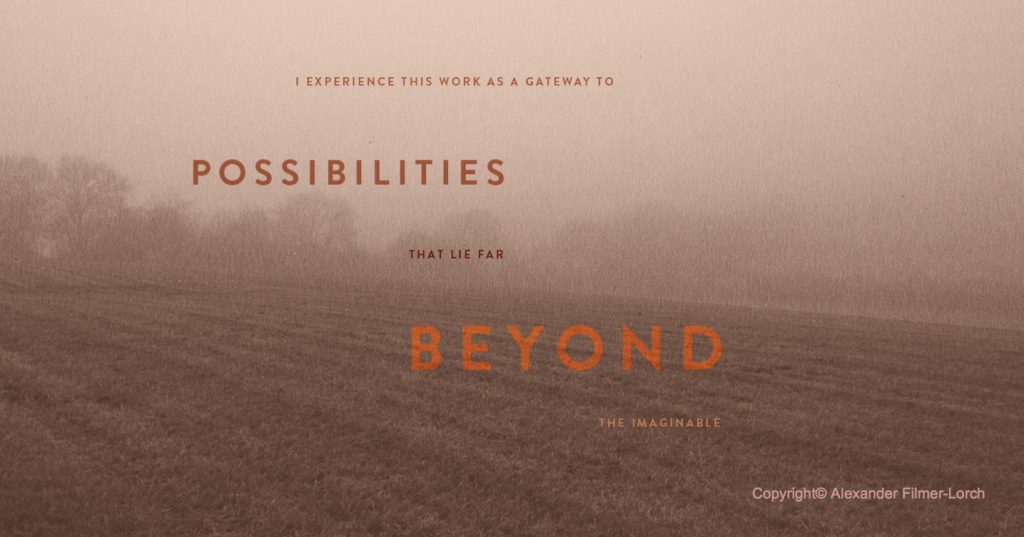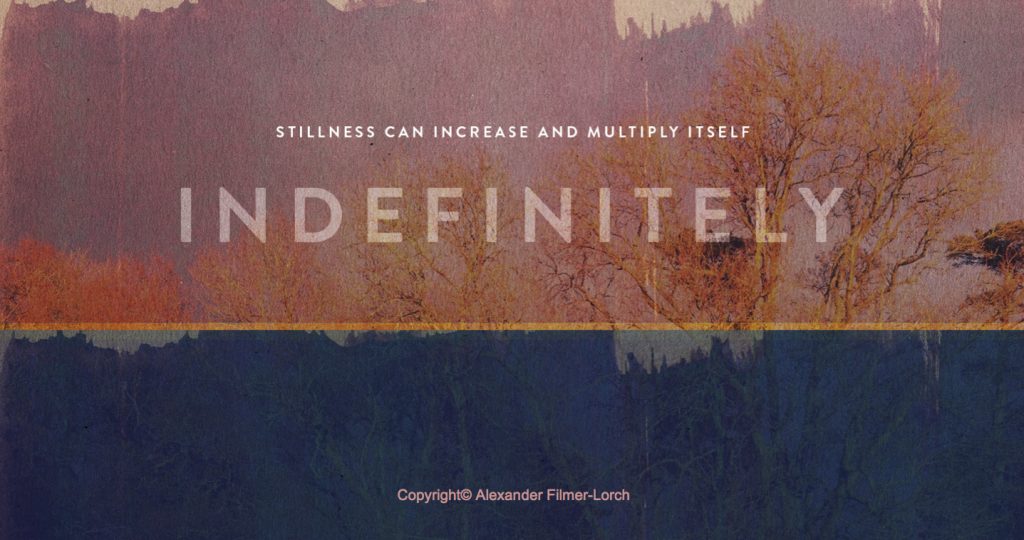For everyone enjoying Alexander Filmer Lorch‘s meditation series, delve deeper into your understanding of scale together with a simple exercise to gain greater perspective on your life.

The moment you contemplate the meaning of scale, and the possibilities that scale provides, you realise that everything you see or experience has an almost infinite degree of scale attached to it. In other words, everything external and internal can be observed from different perspectives along the line, or within the different dimensions, of scale.
Many systems, ideas, concepts and events can’t be grasped, understood or experienced to their full extent without keeping the universal idea of scale in mind. Practically applying the idea of scale to the relevant things in life expands our limited way of thinking and has a transformative impact on our perception. Hence it leads to greater freedom in the way we might respond or how we might practise on our yoga mat.
The term ‘scale’ is mainly applied to systems containing the capacity to expand, yet very little is known about the internal psychological scale or the cosmological universal scale.
The Psychological Scale
The scale of our psychology can be seen as a contracting or expanding field of a subtle vibration, which is under the influence of increasing or decreasing laws, depending on whether we are ascending or descending along its vertical range or axis.
The higher its frequency the less limiting our take on things becomes and the less identified we become. The lower its frequency, the more limiting our view on things and the more identified we become.
Scale in Everyday Life
There are different dimensions to scale and we are most familiar with the scale of cartography, which is a two-dimensional or linear scale.
- Cartography portrays the ratio between two points on a map to the real distance between the two corresponding points. A map on a large scale shows much more detail than a map on a small scale.
- Another very familiar scale is the musical scale or octave in which ascending and descending notes are arranged by the composer in a specific scheme of intervals to create a piece of music.
- In medicine the idea of scale is used to measure mental and physical developments using a graded series of tests.
- Scale in maths is the notation of a given number system. A ruler or other measuring device represents the idea of scale as well as a weighing device.
Architecture is the Holder of Ancient Knowledge
The scale of architecture takes us into three dimensions and features the relationship between different facets of organised space and structures in their relationship to the viewer.
The scale and size of buildings not only impress the viewer, but also create different moods, which are the result of the total interaction of dimensions in space that underlie every element of the composition.
A variety of artistic effects can be achieved by creating a perfect balance between the geometry, height and textures and the way natural light enters the building.
A relatively small architectural structure viewed from the outside can give a much larger impression and sense of spaciousness once one enters the building, depending on the structural layout and use of space.
Grand-scale structures like ancient temples and cathedrals often symbolise the power and social position of the person ordering its construction. Some of them intend to make us feel insignificant, whereas others are supposed to create an image or feeling that is understood not only by contemporaries but also by future societies and cultures.
That is, temples, mosques, pyramids and churches were not only built for the purpose of worship or spiritual practice; they are carriers and transmitters of ancient knowledge concealed and encrypted within their geometric structure.
The Scale of Events
A completely different kind of scale is the scale of events in everyday life.
Our life from birth to death is nothing more than a succession of events. Each day is a series of events that are crowded in on many different scales. It is personal events that attract most of our attention, and these can be divided into external and internal events, which take place simultaneously.
Our attention is constantly drawn back and forth between internal and external events, depending on the intensity of their gravitational pull of importance or priority.
As we move along the scale we come to family events that see us usually discussing the internal and external events affecting individual family members.
Then there is a larger circle of events gyrating around our personal and family events, which relate to our profession, friends and community. Those are, in turn, surrounded by our local events, which we usually come across by reading our local newspaper or watching a local TV channel, though we are not necessarily personally or actively involved in them.
The local events link to our national events, which form part of the world events, and all of them take place simultaneously on different scales.
Exercise:
Catch the moment when you shift from the current event to another, such as the event of sending a text, shifting to the event of tweeting, to directing your attention to the event of your current studies
Try to prolong the gap between events and connect with a far greater perspective the current events that form part of each.

The Universal Scale
These examples of scale illustrate the point well, but the most impressive and transformative example of scale is the night sky. The impact of the infinite scale of our sky at night reflecting billions of stars, planets and galaxies can lead to a different sense of scale in both thoughts and ideas.
The expansive nature of the night sky may make us aware of our own insignificance in relation to the whole and in the process connect us with the sense of a far greater presence that governs and determines all there is, manifested through myriad seemingly incidental scales of universal events, which are ultimately forming the events of our own personal life. This different scale of thought, which usually appears when we are touched on a deeperlevel, awakens our higher emotions and this is the beginning of meditation.

This post was written by Alexander Filmer-Lorch SYT, Author of ‘The Inner Power of Stillness – a practical guide for therapists and practitioners (Handspring Publishing) & ‘Inside Meditation – in search of the unchanging nature within’ (Troubador Publishing)






Leave a Reply